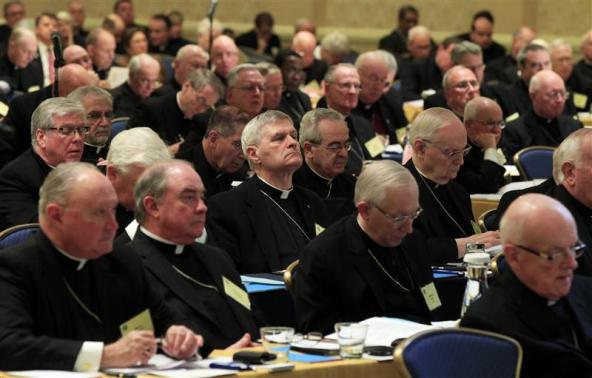With this year’s plenary gathering of the Council of the Bishops’ Conferences of Europe being held in Poland, solidarity seemed an obvious theme, alluding as it did to the trade union founded by Lech Walesa in 1980 that was crucial in bringing about the end of communist rule in Eastern Europe.
“The theme of solidarity I think was also to get all of us to understand the roots of the whole European project, which involved bringing together countries many of whom had been at war with each other, to see the European project and solidarity within Europe as something that lifts them out of the kinds of nationalistic tendencies that can be harmful,” Armagh’s Archbishop Eamon Martin told The Irish Catholic.
“I’m not saying this as an anti-national thing, people were of course very strong on their own identity and diversity within Europe, but solidarity in how it effects the mission of the Church and indeed draws the nations of Europe together was the key theme of the gathering,” he said.
Solidarity
Although by no means all 39 countries whose bishops’ conference heads gathered in Poznan earlier this month are EU countries, Brexit was an inevitable topic for a gathering of European bishops on the theme of solidarity, such that Armagh’s Archbishop Eamon Martin did not need to introduce the topic.
“The issue of Brexit itself came up and you can imagine that many of the western bishops from some of the countries like Germany, from France, from Spain were taken by the whole issue of Brexit and the impact that it’s having on the European Union. It was into that context that I spoke,” the archbishop said.
“Essentially because we were on the theme of solidarity, I was trying to reinforce the importance of union within Europe, which is broader than simply the European Union, and the importance of solidarity and how the solidarity of other European countries formed a very important backdrop and canvass upon which the Irish peace process was written,” he said, continuing, “I was basically explaining to the delegates how important the European themes had been to the development of our peace process.”
In doing so, Dr Martin drew on his own experiences and spoke of one of his home city’s greatest sons.
“Of course, being a good Derryman, I cited the contribution of John Hume, who I think very effectively used the European platform to bring us beyond the kind of squabbles and narrow understanding of nationalism which could itself engender strife and division,” he said.
“Hume was very much somebody who spoke about our common belonging to Europe as something that lifted us beyond the interior strifes and struggles that could happen between near neighbours. In other words, he was about bridges rather than borders.”
The gathered bishops were very interested, Dr Martin observed, in what this had meant for him growing up.
“I gave a particular example which the delegates were very interested – the fact that I had grown up so close to two of the major border checkpoints, on the Culmore Road and the Buncrana Road in Derry, two of the main arteries South to North, which were heavily fortified and which themselves became symbols of division and therefore attracted violence, attacks, and indeed death and destruction.”
With this background, he said, he was able to speak about how borders and barriers are not simply lines of maps, or even physical borders and barriers, but can help create sectional interests and mindsets, and testified to the nervousness of Ireland’s border communities about how the restoration of border structures could attract violence.
Explanations of how his own diocese is divided between Ireland and the UK intrigued his fellow bishops, he said, with several of them speaking to him about this over coffee at the gathering.
“Remember, this was a gathering of 39 European countries, many of whom really would not have understood the Irish border question,” he said.


 Greg Daly
Greg Daly